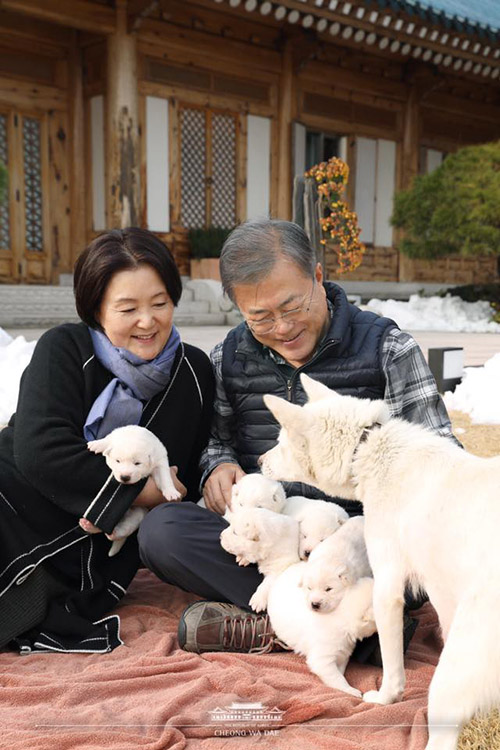CNN on Dec. 26 reports that the consumption of dog meat in Korea has plummeted while the number of Koreans with dogs as pets has surged. (CNN)
By Kim Young Shin
CNN on Dec. 26 reported that the dog meat trade in Korea has seen a sharp decline as the majority of Koreans consider canines their friends rather than food.
Headlined “South Korea turning away from dog meat trade,” the article told of President Moon Jae-in’s first dog Tori, which had suffered abuse from its former owner but was rescued to become the country’s first dog.
“Tori’s story is emblematic of a shift in attitudes across South Korean society as dogs go from the dinner table to treasured companions,” CNN said.
The number of dog eaters in Korea has declined in recent years while that of Koreans owning dogs as pets has seen exponential growth, the article added.
Data from Seoul Metropolitan Government show a 40-percent drop in the number of restaurants serving dog meat between 2005 and 2014. Two bills proposed at the National Assembly want to ban raising dogs for meat and feeding dogs food waste at farms breeding dogs for food, with CNN saying the passing of these bills could break the weakening dog meat industry.
Citing the recent closure of Korea’s biggest dog slaughterhouse, CNN quoted Kim Nara of Humane Society International Korea as saying, “(It) sends a clear message that the dog meat industry is increasingly unwelcome in Korean society.”
A Gallup Korea survey also found that about 70 percent of Koreans will no longer eat dog meat, a huge leap from 44 percent in 2015.

Korea’s first couple on Nov. 25 spends time with Gomi, one of two Pungsan breed dogs sent from North Korean leader Kim Jong Un, and her six puppies. (Cheong Wa Dae)
On the reason for the changed perception of dogs in Korea, the American news outlet mentioned “the need for companionship in an increasingly competitive and atomized society.”
Suh Eun-kook, a professor of psychology at Yonsei University in Seoul, was quoted as saying, “Increasing single-household numbers and a relatively high level of stress experienced from interacting with people in South Korea might have contributed to this change.”
“(The) unconditional love from dogs seems to have contributed to a growing popularity of keeping dogs as pets.”
CNN also highlighted the brisk growth of the Korean pet industry.
The surge in the number of Koreans owning pet dogs has fueled a boom in pet-related businesses such as pet hotels with spas, beauty salons and cafés. According to the National Agriculture Cooperative Federation, the domestic pet sector has grown in value from USD 1.14 billion in 2013 to USD 3.4 billion in 2017, and is expected to hit USD 5.4 billion by 2020.
“While not all dogs get such luxurious treatment, the transformation of their status in South Korea seems clear,” CNN said. “Today a dog is much more likely to appear in a family’s photo album than on their dinner table.”
Click the link below to read the original article:
https://edition.cnn.com/2018/12/25/asia/south-korea-dog-meat-intl/index.html
ysk1111@korea.kr